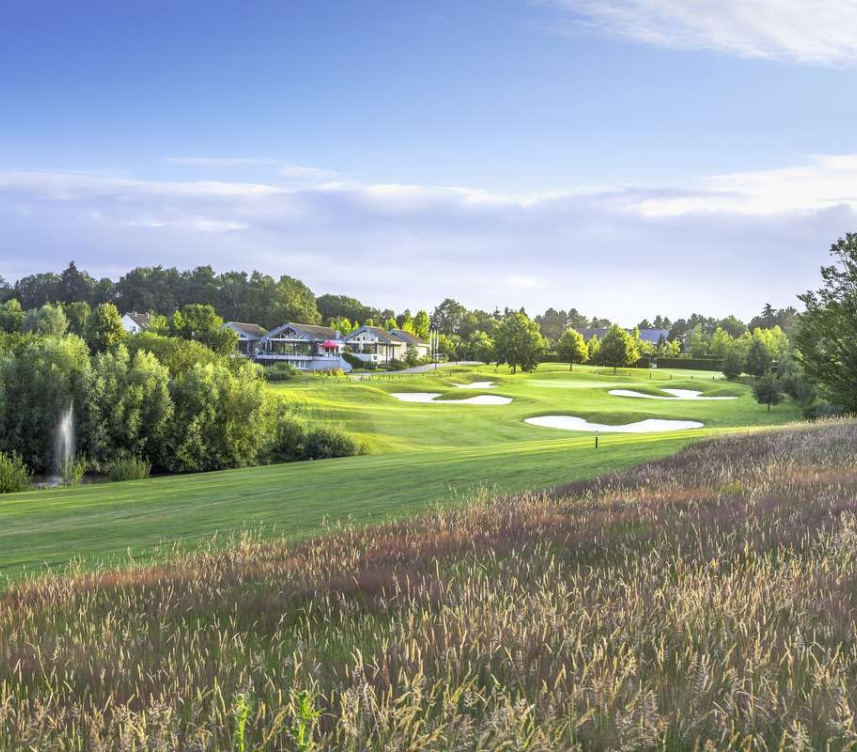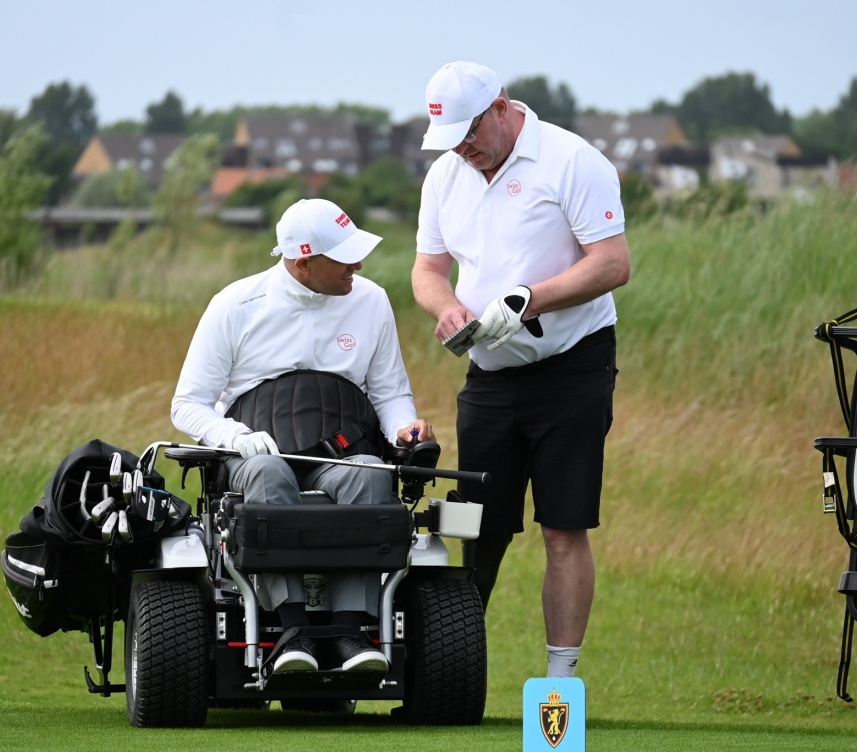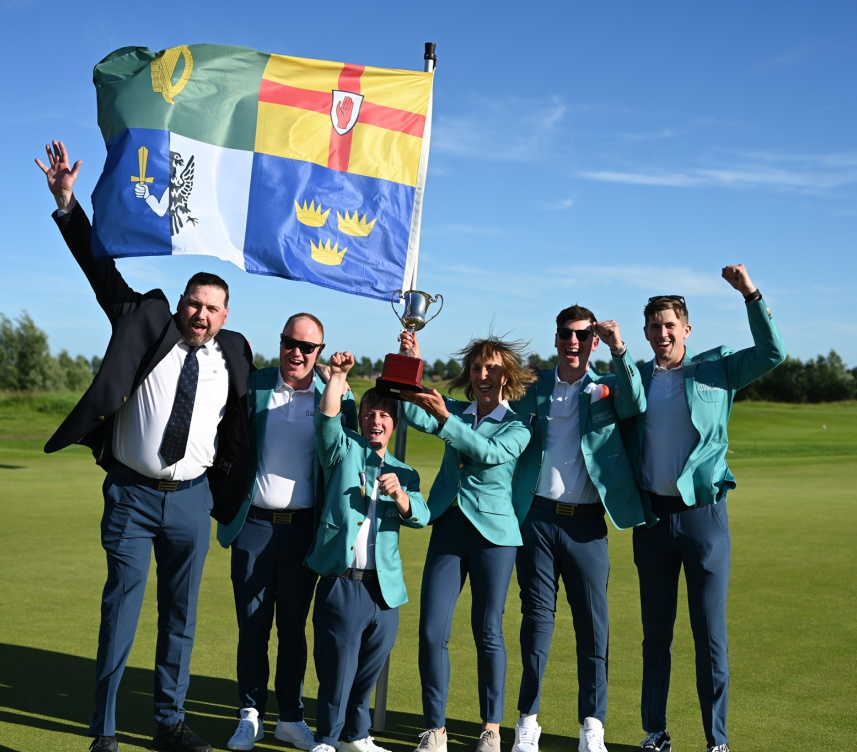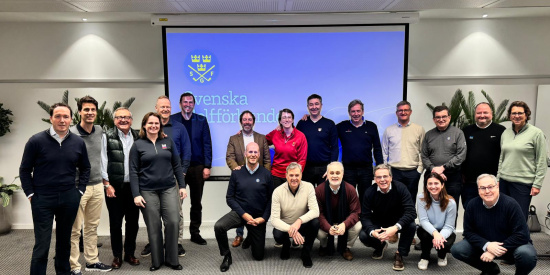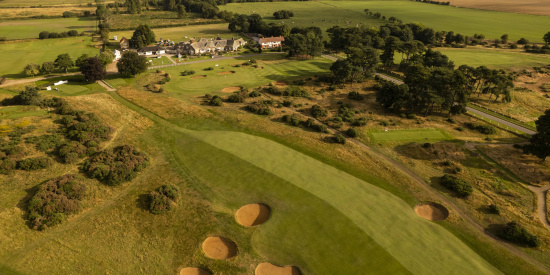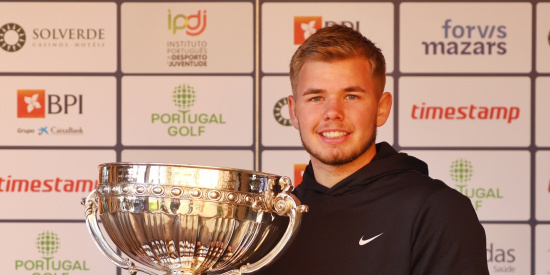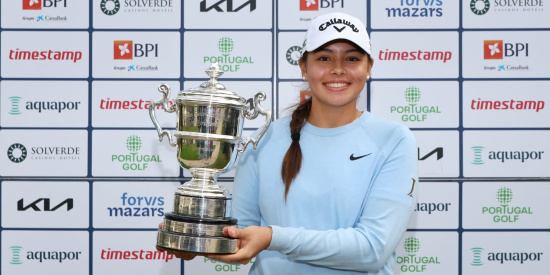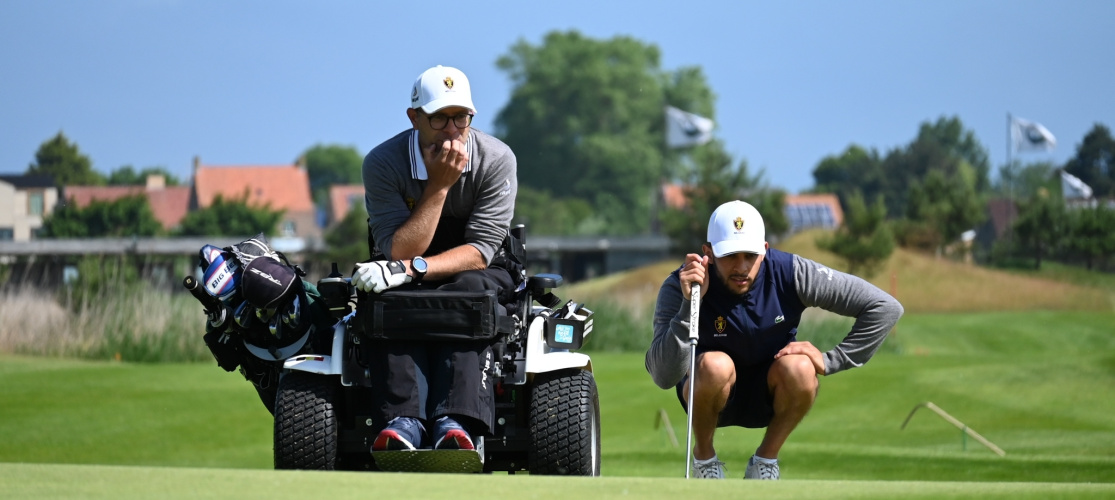
Eight teams of four players will be experiencing the ‘butterflies while being ready to compete for their country this year in Germany in the biennial European Team Championship for Golfers with Disability, supported by EDGA.
As ever, this championship exemplifies the thrill of team golf but this year new ground is being broken in G4D (golf for the disabled).
The German host team will welcome teams of fellow G4D players from Belgium, England, France, Ireland, the Netherlands, Norway and Sweden, to tee it up at GolfClub Hösel, on the challenging but highly attractive North Course which is found in North Rhine-Westphalia to the west of the country.
Golf is one of the great pastimes for the individual, challenging a person’s skill, hard work, decision-making and keeping cool under pressure. In G4D terms the individual is also tested by taking on a golf course with their impairment, but finding their way to often exceed their personal targets.
The European Team Championship for Golfers with Disability, which is in its 6th edition (starting in 2013), is set up to be the ultimate team challenge, while this year new competition rules also make it surely the most inclusive such championship yet.
All G4D registered players present will come from one of nine ‘sport classes’ covering all impairment groups including amputees, orthopaedic and neurological conditions, seated players, intellectual classes and golfers who are visually impaired.
EDGA, the acknowledged international authority on G4D, created the sport classes to ensure that all players can test themselves to the maximum in their class, including in competition. Then, for team golf, players qualify for selection from four ‘Bands’ (groups) made up of these classes (Band 1 being the most impaired, Band 4 the least impaired). This second EDGA innovation ensures players of every type of impairment have the opportunity for team selection, with each team of four also selecting at least one female golfer, a vital element in the bid to grow female participation in this arena.
This means players who are seated for example, or who have a visual impairment, could play alongside and against the very best gross players, as is the case with Norway’s Mette Havnaas, who is visually impaired, and relishing the prospect of playing her best golf in Germany. Meanwhile, highlighting the variety of team selection possible, for England, seated player Phil Meadows is joined by Tony Lloyd, who was born with bilateral upper limb phocomelia (which he refers to as having elbow-length arms with no hands), and also Aimi Bullock, a golfer who has multiple sclerosis, and Thomas Blizzard who has autism, to complete the quartet of competitors.
Mette Havnaas said she was delighted to be representing Norway as a player with a visual impairment, a chance she might have otherwise not experienced. She said: “I am very proud and humbled to play in the Norwegian national team. I am sure it will be a great experience, something I would not have thought possible when I started playing golf.”
The Netherlands’ Mari Berkers is an experienced team player in these championships. He said: “First of all I think that all players are proud to represent their country, in my case it's my fourth time. The new format with different players from different categories makes it a more inclusive event: there are going to be players that have never had the chance to represent their country in a big team event like this one. I am really looking forward to it and hopefully we can bring home a medal.”
Dr Tony Bennett, President of EDGA, said: “Golf has been much talked about in recent years for having the capability to be the most inclusive of games but here, thanks to the European Golf Association’s forward thinking, this is written large.
“And while inclusion is a great thing for any sport, there is no tokenism. Each of these players has very much earned their place by their performance, by excelling in their individual sport classes and being among the best players in their countries. The championship is crucial to highlight the pathway that is available for all players with a qualifying disability. We also want to inspire more women to enjoy golf, and believe the changes this year can be a significant step in the right direction. Ultimately, this format will create a highly competitive team event that will showcase playing standards to a wide international audience which can be great for the future of our game.
Christian Nachtway is a seated player from host country Germany and a great innovator in golf; indeed he has been a leader in the design and engineering of the powered chairs that have helped bring about such positive changes in G4D. Christian said he was looking forward to welcoming the other teams to the event and explained: “It is great to be part of what I see as a very positive development. These changes will align us more closely with Paralympic rules, and the public will have a more authentic perception of athletes with serious physical disabilities.
“A wheelchair golfer for example can hardly achieve the same performance as a player who can make a full swing without technical aids. These new rules are also very beneficial for us at BGC Germany, as we have been dedicated to diversity and inclusion for 30 years and aim to give every disabled person the opportunity to enjoy this wonderful sport. I am very proud to be a part of the German team.”
Two years ago Irish golfer Gareth McNeilly captained his own nation’s team to a thrilling victory. Gareth has no doubt of the value of the European Team Championship and its knock-on effects.
“This was certainly my best week in golf so far. Everything about the event was top class,” said Gareth. “Leading the first Irish team ever to enter the competition was an honour in itself; for the four players to then play exceptional golf and win was beyond all our dreams. That win has inspired so many more golfers with a disability in Ireland to get involved with EDGA and other G4D events; many with the dream of someday also representing our country.”
The championship runs over 54 holes (three rounds) with formats of foursomes (day 1), greensomes (day 2), four-balls (day 3), with the team captains selecting pairings of players.
For several years the Team Championship also had a secondary but no less important net competition for golfers with higher handicaps, the European Nations’ Cup. With the new format the Nations’ Cup has also transformed and is now a complimentary G4D team event. Teams taking part are able to select a mixed team from any qualifying player and this year’s championship will be contested by six teams, from Belgium, the Czech Republic, England, Ireland, Italy and Switzerland. Sharing the same scoring formats and the same passion from the players, this event will likely become a proving ground for future European Team Championship players.
In 2022, Switzerland made its national debut in the Nations’ Cup, proudly represented by the quartet of Patrick Rosenast, Miro Waldvogel, Emmanuel Berset, and Patrick Maurin. This year's team captain for Switzerland, Patrick Rosenast, said: "This was just brilliant, a great inspiration for us players and the country!
“Once again, it is a great honour for us players (Doris Stalder, Emmanuel Berset, André Lehmann, and myself) to represent Switzerland. We are participating in this amazing event in our neighbouring country, Germany, at the Nations’ Cup, where we are focused on playing our best and making our nation proud.”
EDGA President Tony Bennett added: “Representing one’s country is, for many, the pinnacle of sporting achievement; to do so at the EGA European Team Championship makes wearing your country’s colours even more special. We are delighted to bring the championship to GolfClub Hösel and to have the German Golf Federation as our hosts. Congratulations on being part of this unique and prestigious event, which I trust will leave you with memories and friendships to last a lifetime.”
